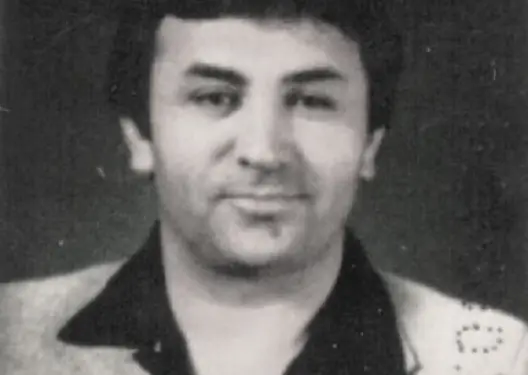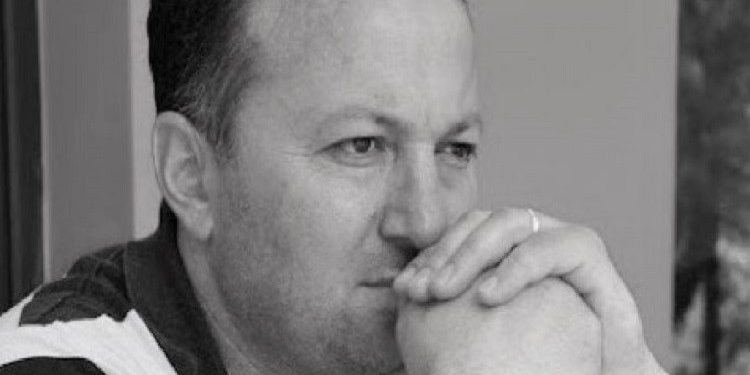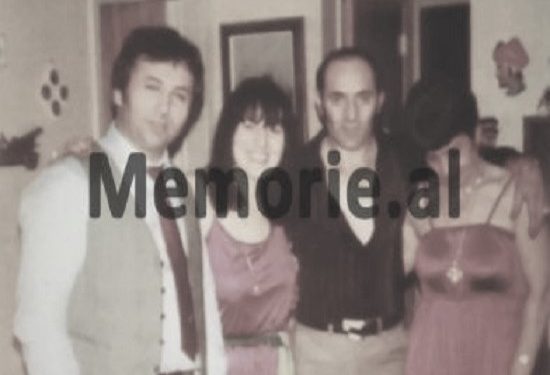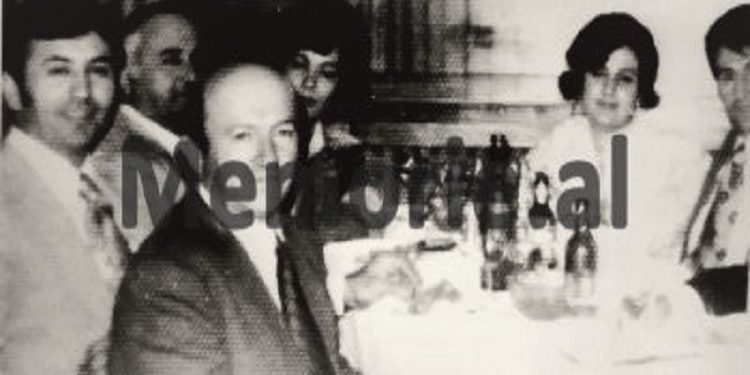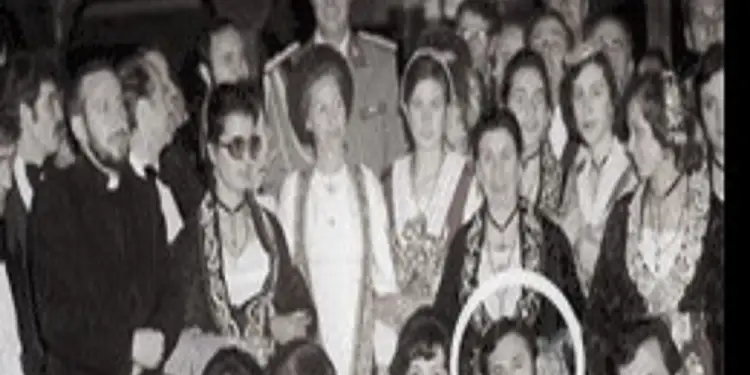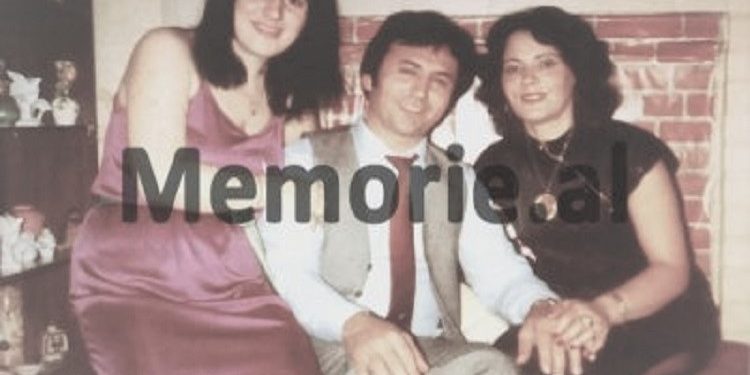By Ferdinand Dervish
The first part
Memorie.al / Until the day when Xhevdet Mustafa’s group landed in Divjaka, the beach policeman, Sokrat Biti, had lived a quiet life. Even pleasant, compared to that of other peers, to whom the frog fell in the fields of the agricultural cooperative. His father, an old fisherman, had managed, because of his profession, to have strong friends, even the head of the list was himself, Kadri Hazbiu, a trusted man of power and a powerful minister at that time. For these reasons, it was easy for him to join the ranks of the police, even though he did not have the relevant higher education. So, for 25-year-old Sokrat Biti, even the black day of September 25, 1982, had started with a good outlook, like all the others. Tour the sea with a boat to monitor the beachgoers, exactly in the role of a baywatch and further at the disposal of the deputy chief of the Lushnja Police, Remzi Brixhi, who was badly bitten by the fishing worm.
“There were four of us on the boat that day. Of which Xhevdet Mustafa killed three. They write blindly in the newspapers, when they say that only two policemen were killed on the beach, in Divjaka”, Sokrat Biti begins his story, completely preoccupied with every word and phrase he articulates. Already the owner of a good bar in the middle of Divjaka, Sokrati radiates again, the look of a lucky man. But along the calmness of the narration, the consequences of a very difficult life, changed, even violently overturned, immediately after this unusual event, which involved him in its vortex, with a lot of spilled blood, can be read.
Sometime after that, quite suddenly, the justice structures of the time accused him of “abuse of duty” and further arrested him and sentenced him to 8 years of imprisonment. A difficult and scary situation, where even powerful friends of the family could not enter and intervene. “They accused me that I had not done my duty to the Motherland well, since I had not jumped at Xhevdet Mustafa’s throat, to kill him together with the others. While I, at the moment when Xhevdet mowed us down with a machine gun, I was only in beach panties…”, pronounces Sokrati, always very serious.
Massacre on the beach
According to the confession of Sokrat Biti, that afternoon, in his motorboat, in addition to his work colleague, Sazan Zeke, there was also the deputy chief of the Lushnja Police, Remzi Brixhi, and an employee of the Order Police, Engjëll Agalliu. Of all of them, only Socrates was out of uniform, even just a pair of beach shorts. To this day, Socrates continues to call this lucky coincidence, great luck. He says that because of the clothing, not at all similar to the policeman’s uniform, he has his life. While, according to him, Xhevdet Mustafa sawed all the others with a machine gun, just because they were wearing blue uniforms.
“It was an ordinary September day; it was even hot. First, we went for a walk on the beach, then we took the road to the fishing enterprise in Karavasta. Remziu, the deputy chief, was obsessed with fishing. It was enough to see fish, even those caught by others, and he was satisfied. On the way back, as soon as we left the canal that connects the lagoon with the sea, Angel and Sazani decided to check the area. To be clear, it really came down to doing two jobs at once, as such were the times.
The sea often washed ashore cans of various formats, which for us Albanians, if we found them, constituted great wealth. They got off the boat and headed south, always without leaving the shore. They told me to go with them, but I didn’t like walking along the shore, so I refused. From that moment I never saw them again in my life. While me and the deputy chief, we started to postpone the time on the shore, once we even threw a couple of hooks into the water”, Sokrat Biti begins his confession about the most difficult day of his life.
Also, he says with conviction, that he would find out a long time later, that the two policemen who left the coast were killed by Xhevdet Mustafa. “We didn’t hear any gunshots, nothing suspicious. Only after about 30 minutes, when we were almost ready to go to look for the Angel with Sazan, in the direction from which he ran, we see three men coming in our direction. We never suspected that they could be saboteurs, as we called them at the time. In those years, events similar to this were very old and personally I had only seen them in movies”, continues the ex-policeman from Divjaka beach. Then he would be completely shocked by what would happen.
So much so that in the narrative that follows, Socrates’ actions seem like those of a man acting like a somnambulist. “Upon approaching at a distance of about 5-7 meters, the people in front took out some short automatic weapons and asked the deputy chief to surrender. But while Remziu still hadn’t gathered his mind, one of them, the one who was in front of the others, the youngest and the biggest, shot him with a volley. I saw Remzi fall at my feet, writhing in pain, and I went numb. He couldn’t get a word out of his mouth. From this moment on, it was as if I was disconnected from reality. Everything started to seem to me, as if I was in a dream…”, Sokrati explains, the first moment of facing Xhevdet Mustafa’s group.
Hostage and guide
“The man at the head of the group didn’t shoot at me, maybe because I was only wearing beach shorts, maybe because he thought I wasn’t a policeman, but there are many possibilities that in those circumstances, he needed a guide. It was clear that they had a problem. I only remember that the first of them, the one who would later appear in my mind, also named Xhevdet Mustafa, asked me why we were there. I answered as if numb, that we wanted to hunt fish and it is likely that even this ‘correct’ answer has extended my life”, confesses Sokrat, adding that the three men had only one bag with them, which they gave him he himself kept it, it seems because they wanted to be as free as possible in their actions.
Further, having “instructed” Socrates not to think of any adventure, –an instruction accompanied by the waving of pistols in his direction, –all together, they got into the boat to go over to the side other side of the canal, which connects the sea with the lagoon of Karavasta. “Later I understood that they took only the lightest part of the equipment with them, that they had left the rest hidden in the sand where they had spent the night. Maybe where they left our two friends, Angel and Sazan, dead”, Sokrati confesses.
It seems that the delay and confusion at the landing site, of the three people who had come with the intention of “killing Enver Hoxha”, had blown up that part of the plan, which required equipment to climb high buildings, grenades, to caused panic, and other essential items, for a team of armed commandos. Equipment that was later found buried. “In the bag I was carrying, over time, I learned that there were three short automatic guns, cartridges and food. After crossing the canal, we entered the forest. I soon got the idea that they knew the area and had no problems with orientation. While there it seems they were blocked, because of the deep channel. We continued to follow the paved road, which passes between the pines of the Divjaka beach, of course, walking parallel to it. Once we heard a noise.
Xhevdet hid behind a pine, with his pistol raised above his head, while the other two, putting me in front, entered the forest. I heard a short dialogue, which ended in rejection. Xhevdet told someone riding a bicycle to stop, but it seems he didn’t obey. A moment later I heard the muffled sound of Xhevdet’s silenced pistol and the other fell off the bike with a scream. He had killed him. Then I would learn that the victim was an acquaintance of mine, Vlash Përboti, a forestry worker. His only fault was that he was passing by in the wrong place, at the wrong time”, says the ex-policeman taken hostage. According to Socrates, after they had left behind the belt of pines, the three-armed men had stopped to give him a shirt.
“I was naked from the middle up and they gave me a blouse to look more serious, moreover, at this time, the evening was also falling. I remember that the three of them were simply dressed in sports sneakers, denim pants, and summer cotton T-shirts. They were not very noticeable. Until near Divjaka, we followed the paved road, but upon arriving near the first houses, we turned left, going out through the fields. In the meantime, night had fallen and I remember that on the way, we hardly exchanged words with anyone. Until the vicinity of Rrogozhina, we walked parallel to the car road, always avoiding possible contact with people. I remember walking again, as if I were in a dream. That I didn’t feel any kind of fatigue, despite the long journey that continued almost all night, that I didn’t feel the pains from the injuries on my uncovered legs, either from the thorns of the thorns, “Socrates confesses, continuing to repeat that the events, they had been discharged so strongly into his mind that they must have left him half numb.
“At that time, such situations were realized only in movies, while we in Divjakë, slept at night with the doors open. No one expected such horror. The whole time, I was like a hit and in no case, I couldn’t calm down and think of a solution. They told me to turn left, that’s where I went, they told me to go right, I followed it meticulously”, said Socrates. However, he also remembers snippets of the conversations between the three-armed men, who spoke a heavy Albanian, he remembers that in many cases, they communicated in English and that he himself, once it occurred to him, that it was not Xhevdet Mustafa, he the big man who quickly pulled the trigger, the leader of the group, but another, whom he would later learn was called Sabaudin Haznedari.
“It seemed that the others were listening to this Sabaudin. He always had the last word. Meanwhile, Halit Bajrami didn’t speak at all, while Xhevdeti only approved Sabaudini’s arguments”, the former beach policeman confesses. After a few hours of walking, everyone arrives at Qafa e Sokol, near Rrogozhina, south of it, near the bridges over Shkumbi. There, doing it in turn, they fell asleep, while the plan, which they had agreed on before, was to get on the first train heading to Tirana in the morning.
Calamity at the train station
“Early in the morning, we went to the train station in Rrogozhinë. By this time, the traffic of cars and people had started. I remember that as soon as we approached the train station, Xhevdeti tied my hand to his with a piece of wire. An action that again accompanied him with threats, if I spoke, or tried to leave. All the time, he kept me in front of him, repeating to me that he would kill me if I made even one wrong move”, says Sokrati, the most difficult moments he has experienced. In continuation, he tells; that in the vicinity of Rrogozhina, completely alarmed, that everyone went to a police checkpoint and that the policemen, either sleepy or completely uninstructed, did not suspect anything.
“At the entrance to Rrogozhina, I heard Sabaudini cursing the communist system. He openly expressed his dissatisfaction with the regime. According to him, Rrogozhina had not changed even after 20 years, which had passed since his escape abroad. I remember he said a joke, more or less like this: That’s how I left, that’s how I found it, this cursed place”, confesses the ex-policeman, who swears again, that at least for as long as he stayed by their side, the leader of the group, it was not Xhevdet Mustafa at all, but Sabaudini.
“Fortunately for many and unfortunately for them, they arrived at the station late, to take the train to Tirana, after it had left. At that time of the year, the train schedule had just changed and they didn’t seem to have this information. So they had to wait for another train.
I remember that when we got close to the station, Xhevdet, without solving me, directed to several bunkers, placed in a stack, waiting to be loaded to the right of the building. At the bunkers, they hid the bag and decided to split into two groups. Xhevdet and I did not move from the place, while Sabaudini and Haliti, who took only their pistols with them, entered the station. Time was passing. I remember that at this moment, for the first time, I untied my tongue, asking Xhevdet to go to the bathroom, but he reacted negatively, while I did not insist”, Sokrati confesses.
Upon learning that the train to Tirana had left, the three-armed men made a plan to wait for the other one, but it seems they overestimated their security. Moreover, it seems they did not consider that the discovery of the corpses they had left behind would have provoked the raising of the alarm in the whole area. It was the time when the volunteer forces worked, and the organization was such that as soon as the alarm was given, they were armed and occupied the key points in less than 1 hour…!
Xhevdet Mustafa, the story told by the man who kept him as a guide
At the end of September 1982, the propaganda media of communist Albania trumpeted as another success, the destruction in record time, of a “gang of criminals” that had landed from the sea, with the aim of overthrowing the “people’s power”. The name of the leader of the group, Xhevdet Mustafa, was blackened so much that it started to scare children. Of course, the truth was kept away from the people this time as well.
The State Security structures worked hard to turn everything that happened in favor of the government, and they succeeded. But what was the truth of the mission of this group of armed people who dared to enter the armored communist Albania? The investigators, already far from self-censorship, say that the only goal of the armed group was to kill Enver Hoxha, with the aim of changing the political system.
At least this variant still remains with strong foundations. But what really happened on September 25 and 26, 1982?! The story first seen from abroad has been written and rewritten several times. But this time, we are serving something different. We are serving the story of these two days, observed by the former Divjaka beach policeman, Sokrat Biti, who was taken and held hostage by Xhevdet Mustafa, for 20 hours. Convinced to speak for the first time about this story, he recounts in detail everything, from the moment when the terrible, big man (Xhevdet Mustafa) appeared in front of him, whose first “salute” was a volley of machine guns, in the chest of Socrates Biti’s colleague, who was a palm away.
Xhevdet Mustafa
Xhevdet Mustafa, a resident of Durrës, had left Albania in 1964, ending up in the United States of America. Creates a family and becomes a father of two children. There were reports that he was involved in drug trafficking in large quantities and that for this reason he was pursued by the FBI. Similarly, the records of the time assert that, to escape justice, he hid in Europe. When he came to Albania, he was 42 years old, healthy and physically strong. Before landing in Albania, according to some testimonies, Xhevdet Mustafa was trained in the military. The main goal of his group was to eliminate Enver Hoxha, all this, according to the instructions of foreign agencies, allegedly, such as the American CIA and the Yugoslav UDB.
Halit Bajrami
Halit Bajrami had fled Albania together with his childhood friend, Sabaudin Haznedar, in 1951. He had been a partisan during the War, in the composition of the Peza detachment. In 1951, while performing the duties of Deputy Chief of Security of the Military Corps of Korça, he argued with Rita Marko, at that time the First Secretary of the Labor Party in Korça.
After problems with Rita Marko, he comes to Tirana to meet Prime Minister Mehmet Shehu, but he does not give him the right. Fearing punishment, he thinks of leaving Albania. When he returned in 1982, he was 51 years old, living in New Zealand and married with two children. While living in New Zealand, he was recruited as an associate of State Security.
Sabaudin Haznedari
Sabaudin Haznedari was about the same age as his friend Halit Bajrami, with whom he left Albania in 1951. He stayed for a while in Italy and rather in Turkey. Even Haznedari had been a partisan for quite some time, but in the Dibra detachment. Based on the various testimonies, it is proven that he was the real leader of the group, that in 1982, landed in Albania to kill Enver Hoxha.
According to Hali Bajrami’s data, Haznedari and Xhevdet Mustafa met in 1975 at Leka Zogu’s wedding in Madrid, Spain. According to Haliti, after this meeting, the organization and creation of groups that would act as commandos, to enter Albania, in order to attempt to change the political system, had started. Memorie.al
The next issue follows




